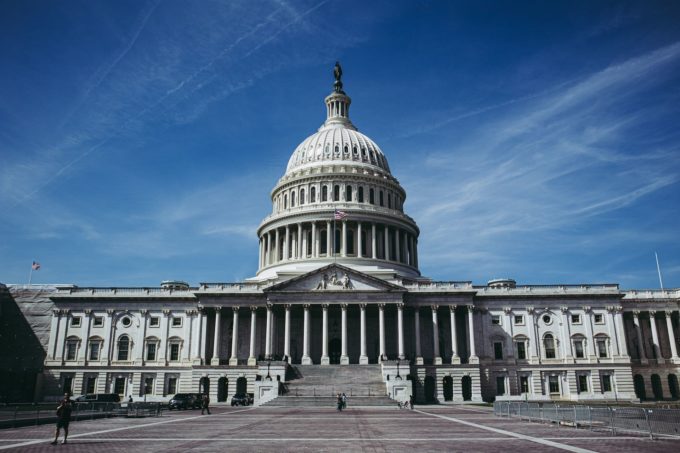
House Passes HR 140, Protecting Speech from Government Interference Act
By George He - Edited by Irene Kim
On March 9, 2023, the House of Representatives passed HR 140, the Protecting Speech from Government Interference Act, by a 219-206 vote. The bill, which now goes to the Senate, would prohibit the government from censoring or retaliating against individuals for engaging in protected speech.
Oversight and Accountability Chairman James Comer (R-Ky.), along with cosponsors Chairs Jim Jordan (R-Ohio) and Cathy McMorris Rodgers (R-Wash), introduced HR 140 in response to concerns about the government's increasing use of censorship and surveillance on private sector social media platforms to silence dissenting voices. The bill's sponsors argue that the government's increasing power to restrict speech is a threat to the First Amendment and to the democratic process. The House Oversight Committee provides commentary expanding on this concern about how current government officials have pressured Big Tech to censor certain views.
This bill follows recent allegations of government pressure on social media companies to suppress content — including about Twitter and Hunter Biden –– by Republican politicians. When introducing the measure in January, the bill’s sponsors cited what they said were instances when federal officials in the Biden administration “used their positions, influence, and resources to police and censor ordinary Americans’ speech expressed on social media platforms.”
Existing Law
HR 140 expands on the principles of the Hatch Act, a federal law enacted in 1939 to prevent federal employees from using their positions to influence elections. The Hatch Act prohibits federal employees from engaging in political activities such as running for office, soliciting or receiving political contributions, and engaging in political activities while on duty or on federal property.
The most recent amendment to the Hatch Act, the Hatch Act Modernization Act of 2012, was signed into law by President Barack Obama on December 28, 2012. The Modernization Act limited the Hatch Act’s historically broad application to state and local employees by lifting restrictions on running for office and expanding the penalty provisions for federal employees, in strong contrast to the expansion of the Hatch Act in HR 140.
HR 140 specifically calls for prohibiting “Federal employees from advocating for censorship of viewpoints in their official capacity” and would prohibit the government from taking any censorship action against an individual for engaging in lawful speech. Censorship, as defined by the bill, includes:
(A) the removal or suppression of lawful speech, in whole or in part, from or on any interactive computer service;
(B) the addition of any disclaimer, information, or other alert to lawful speech being expressed on an interactive computer service; or
(C) the removal or restriction of access of any person or entity on an interactive computer service generally available to the public, unless such person or entity is engaged in unlawful speech or criminal activities on such service;
HR 140 would also provide for punishment for violation of its provisions through debarment from Federal Employment for up to 5 years, or civil penalties ranging up to $10,000 for senior government officials.
The Bill's Potential Impact
If HR 140 is passed by the Senate and signed into law, it could have a significant impact on the government's ability to censor individuals and companies for engaging in protected speech. The bill would make it more difficult for the government to stop the spread of misinformation by restricting censorship.
HR 140 could also have a significant impact on law enforcement capabilities. The bill would make it more difficult for government employees to monitor and moderate harmful speech, including foreign propaganda, terrorist recruiting, or general misinformation.
Opponents of HR 140
The bill has been opposed by some government officials and congressional members, who argue that it would interfere with the government's ability to protect national security and to enforce the law. Rep. Daniel Goldman (D-N.Y.) argued that the bill was unnecessary because of protections provided under the First Amendment, noting “H.R. 140 would effectively allow [foreign malign actors] — who have poured hundreds of millions of dollars into online propaganda — to create chaos, mistrust, hate and confusion for Americans, to continue using social media platforms unfettered to wreak havoc on our democratic institutions, including the integrity of our elections.” The Hill provides commentary. Democrats have also criticized the Republicans’ rejection of amendments to H.R.140, including proposals to create a national security exception to help law enforcement prevent violence by neo-Nazi groups or to ensure that federal employees can share public health and consumer safety information.
The Bill's Future
The bill's future is uncertain: it is not clear whether the Senate will pass the bill or whether President Biden will sign it into law. Voting for the bill in the House has fallen entirely along political divides, with 206 Democrats voting against the bill and 219 Republicans voting for the bill.